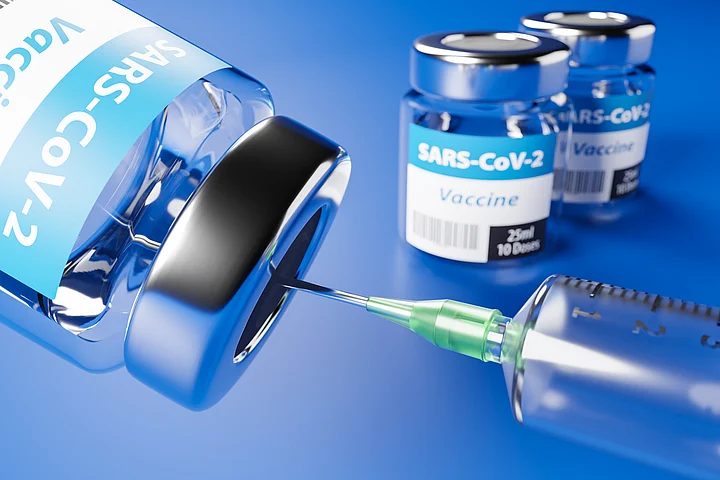The Johnson & Johnson’s COVID-19 vaccine was given the approval for emergency use in India on Saturday, 7 August.
A single-dose vaccine, it's the fifth vaccine to be approved for use in India after Covishield, Covaxin, Moderna, and Sputnik V.
The Johnson & Johnson India spokesperson said, "We are pleased to announce that on 7th August 2021, the Government of India issued Emergency Use Authorization (EUA) for the Johnson & Johnson #COVID19 single-dose vaccine in India, to prevent COVID in individuals 18 years of age and older," Johnson & Johnson India spokesperson was quoted by ANI as saying.
Here's what you need to know about the vaccine:
How effective is the vaccine?
The Johnson & Johnson COVID-19 vaccine was 72% effective at preventing all COVID-19 illness and 86% effective at preventing severe cases of the disease as per an FDA analysis in the United States.
In South Africa, a similar trial produced similar results against a different, more contagious variant. Researchers found the Johnson & Johnson vaccine to be 64% effective at preventing illness there, but was still 82% effective against severe disease.
Who developed the vaccine?
The J&J COVID-19 was developed at the Janssen Pharmaceutical Companies and passed the Phase 3 clinical trials.
Even 28 days after the trials conducted in the United States, Latin America and South Africa, none of the inoculated participants were hospitalised after contracting COVID-19.
Who will produce the J&J in India?
India's Biological E will produce the vaccine in the country, the company had announced on 18 May.
How does the vaccine work?
The Johnson & Johnson vaccine is a single-shot viral vector vaccine, created by a harmless adenovirus.
Adenovirus is a viral vector, and the vaccine is produced by replacing a piece of its genetic instructions with COVID-19 genes for the SARS-CoV-2 spike protein, FIT reported.
Following the administration of the modified adenovirus into an individual's arm, the cells read the genetic instructions needed to produce the spike protein.
After this, the vaccinated cells make and present the spike protein on their own surface, FIT reported.
The person’s immune system then notices the foreign proteins, making antibodies which will protect the person in the incidence of exposure to SARS-CoV-2.
What are the advantages of this vaccine?
As per FIT, the Johnson & Johnson vaccine has two primary logistical advantages.
First, it is a single shot vaccine, which means that it is more expeditious and higher in efficacy than the other vaccine options which require follow-up doses.
Additionally, this eases the burden on production and distribution, escalating the COVID-19 vaccination drive.
Second advantage is that it can be stored at normal refrigerator temperatures (2°-8°C) rather than temperatures in special freezers, for up to 3 months, FIT reported. Further, the vaccine can also be reportedly stories for more than 2 years in temperatures below -20°C.
How effective is it against the Delta variant?
The company on 1 July had said that the vaccine is effective against the rapidly spreading Delta variant of the virus and that it produces strong neutralising antibodies in its recipients for at least eight months, providing protection against all variants of the coronavirus.
The vaccine dose reportedly neutralised the Delta variant within 29 days from the day of inoculation, and the degree of protection fostered improved over time according to a study conducted by them.
The data also showed that people vaccinated by the vaccine should not need a booster shot for at least a year after inoculation.
What about efficacy against COVID-19 variants?
As per official interim data, the vaccine was found to be 57% effective against the South African variant – only 7% above FDA’s minimum requirement of 50%.
However, FDA analysis later revealed that the vaccine proved 64% effective in South Africa once additional sequencing of cases were done.
Dr Philip Grant, the lead investigator on the Stanford University arm of the J&J vaccine trial said, “The fact that the numbers came up a little bit, once they fully analyzed the data from the time of the initial press release, shows that it’s not that different against the South African variant,” CNN reported.
The efficacy in US was recorded to be 72% and above 68% in Brazil in preventing mild to severe illness. In US, the vaccine was 86% effective against severe disease, 82% in South Africa, and 88% in Brazil.
(With inputs from FIT and CNN)
(At The Quint, we question everything. Play an active role in shaping our journalism by becoming a member today.)
